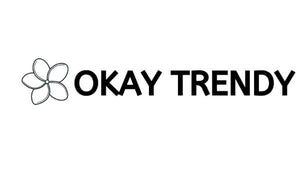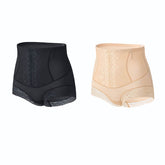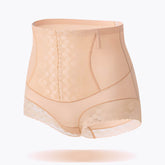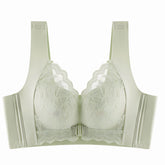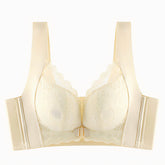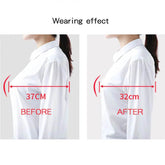3 Reasons You Always Want To Eat Even When Full & How To Stop!

Do you feel like you always want to eat, even when you're full? Even when you've just eaten? Even when you have a stomachache from eating past fullness? Don't worry, I got you. In this article, I'm going to share with you three reasons as to why you always want to eat even when full. By the end of this article, you will be able to know which of these reasons is causing your 24/7 desire for food, and you will know exactly what to do about it to get your brain space back. No more always wanting to eat!
If you're excited to finally break that magnetic pull towards food and get on with living your life—thinking about food a normal amount—then get excited! Be sure to subscribe to the website here where we talk about all things intuitive eating and having no food rules. Be sure to give this article a like and leave a comment letting me know which of these three reasons is your reason for always wanting to eat. Are you ready for this? Okay, let's dive in.
The first reason that you always want to eat is that you're likely not eating enough. Now, this is a super common one, especially for us with a long history of dieting and following food rules. If we don't eat enough, our bodies will begin to fixate on food and we will think about it often. Okay, this is a way for our bodies to essentially cry out for the energy that they need. The human body wants to maintain homeostasis or an equilibrium or stability, and that includes homeostasis in our energy intake. So, if it senses that we're not eating enough, it will essentially send you signals to eat more, get the energy that it needs.
So, one example of this is through hormone signaling. There's leptin and ghrelin, which are hunger hormones that the body regulates to regulate our appetite and our desire for food. So, leptin is a fullness hormone and ghrelin is a hunger hormone. That's just one way that our bodies do that. There's lots of different ways. Now, one popular study called the Minnesota Semi-Starvation Study (mouthful, I know) actually showed this in action where men who were included in the study, which was essentially the equivalent of putting them on a quote-unquote normal diet today, became obsessed with food. So, it's not just a phenomenon that happens when you're starving. It can even be from a more moderate deficit beyond where your body is trying to regulate your energy intake too.
I'm not necessarily talking about "oops, I forgot to pack a snack" or "I didn't have a strong appetite so I had a lighter lunch." I'm talking more about those long-term eating less than what your body wants in the larger sense, i.e., dieting, right? That semi-starvation, even if you think you are eating enough food, you might not if you are comparing your intake to someone else and saying, "Well, I eat as much as them, so I must be fine." That's not really an accurate assessment. Energy intake needs between individuals can differ so much, and that even differs day to day. And just keep in mind that you can't see someone else if they are obsessing over food or not. We have to do what feels good to us and not compare to others.
Another thing to consider here is that maybe you are eating enough volume so you're physically feeling full, but you're not eating enough energy. So, sometimes this idea of volumetrics, which I have a whole article on that I can link for you, such as having a giant salad with very little calories to physically fill your stomach but provide little energy, well, studies have shown that volume of consumed food had a small and short effect on satiety. So, meaning maybe you'll feel full immediately after your giant bowl of iceberg lettuce, but your body will quickly realize this is faux fullness and that the hunger, it's gonna come in hot. Like I said, our bodies are smart and they will know when they need more energy.
If this is you, you're just not eating enough for your body. When you finally let yourself eat, it might feel like you're eating a lot, and I want you to know that this is normal. And I want to explain to you why. So, pretend right now that you're sucking air through a straw, okay? You're getting some air, but not enough. When you finally remove the straw and let yourself take a full breath, it's probably gonna be a big breath, right? You've gotta kind of make up for the time that air was restricted and you weren't getting enough. But after a while, your body gets used to it and realizes, "Oh, cool, air isn't restricted anymore. I'll start breathing normally again." I've made up for what I was lacking.
Same thing with food. Gorgeous, okay? Moral of the story here is we need to be eating to satisfaction. Understanding how to do this can be a whole topic in itself. And that's exactly what I teach in The Society. It's all about learning to interpret our hunger and fullness and satisfaction cues and breaking our food rules.
The second reason you might be always wanting to eat is because you are restricting or limiting certain foods. So, for example, maybe you weren't in that first category—you're eating enough overall energy—but you're trying to eat #lowcarb, right? And you are finding yourself thinking about food all the freaking time, even if you are full. Or maybe you find yourself thinking about certain types of foods, such as sweets. If you are like, "Don't eat the sweets," but you always find yourself craving the sweets, then it's likely the limitations that you're placing on the sweets that are causing you to want more of them.
You know how we tell a kid not to press a big red button and literally all they want to do is press it? Yeah, the same thing with food. And yes, it happens to adults. Basically, we all instantly turn into five-year-olds. So, this really goes down to not a lack of willpower, but it goes down to a neurobiological level, such as increasing a neurotransmitter called neuropeptide Y, which is especially associated with the drive to want to eat carbs.
Not only does limiting access to food cause us to think about them more, but setting limits or even deeming them as bad or unhealthy can make us also eat more of them when we do allow ourselves to have them. So, one study showed that dieters, those who deemed the milkshake bad or said that they could only have so much, actually drank more of a milkshake versus non-dieters in the same setting. So, some people call this the "what the hell" effect, like, "Whoa, crap, I'm eating this quote-unquote bad thing." Like a milkshake, which is totally not bad, by the way. That's what diet culture wants you to believe. So, "What the hell, might as well get it while I can," right? Studies actually show that intuitive eaters, those with no food rules, which is what I teach and preach here on this website and teach step by step inside of The Society, actually are shown to have healthier nutrient intakes despite setting any food rules. They have wider nutrient intakes.
Okay, if your fear of getting rid of your food rules and leaving diet culture in the dust is that you won't want to eat clinically healthy and you'd only want milkshakes, then listen to this. Women and men in the top intuitive eating quartile actually consumed more fruits and vegetables than those who were in one of the lower intuitive eating quartiles. So, basically, those who didn't have food rules, who saw food neutrally, who weren't dieting, ate more fruits and vegetables than those who weren't as intuitive or free, didn't have as much food freedom and no food rules.
Moral of the story here: Diet culture telling us if you don't stay on your diet or chronic lifestyle, you're only going to eat junk food. It's BS. That's how diet culture keeps us handing over our hard-earned cash to them. It's just not true. I have a quiz that talks about how to break your food rules and to stop seeing food as good or bad. Remember, food rules are not just "I let myself eat this, I don't let myself eat that," but it also includes our feelings about food, such as deeming food healthy or unhealthy, good or bad. Those are food morality rules, and we also got to break them to stop thinking about food and always wanting to eat.
Okay, take that quiz if you feel like you have food rules or don't see food neutrally. It's going to be super helpful. The third reason you always want to eat is because of emotional reasons. This one is also super common. If you find yourself wanting to eat in the absence of feeling physical hunger, so it's a common reason for people who always want to eat even when full. Here's why.
When we finish a meal or reach fullness, it's sad, right? Just like when we finish a good book, a Netflix series, or when the super cute puppy you're petting walks away from you. Sometimes we eat past fullness to avoid the uncomfortable feelings of sadness that we experience after a meal. It's not just emotional eating from "I'm feeling stressed so I'm going to eat all the
